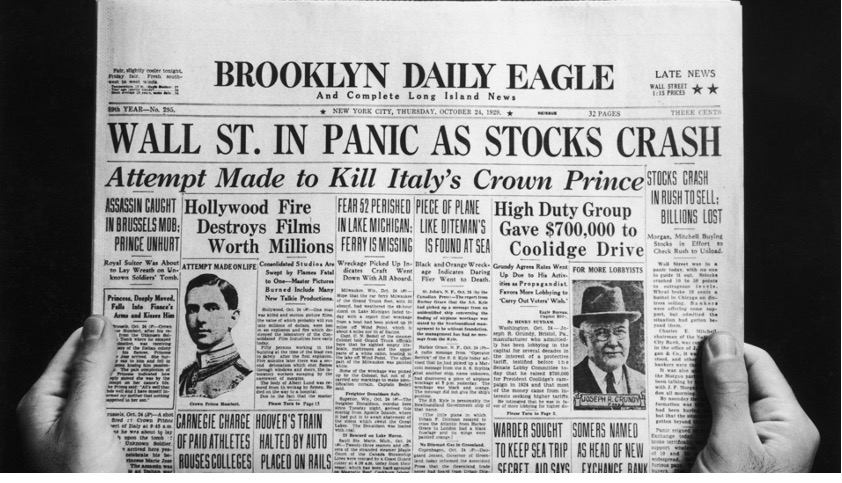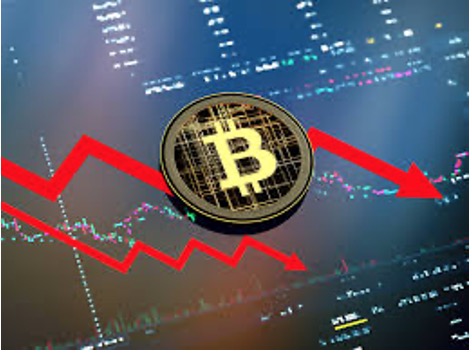CommentsACCORDING TO LIZ - Everything in life is a gamble but some things are more risky than others.
Buying a dollar lottery ticket with a “wouldn’t it be nice” dream is a pastime. Buying hundreds of them when you’re out of a job and have thousands in bills to pay and a family to support is a risk. Spending thousands in Las Vegas in the hopes of paying off loan sharks is an invitation to pain.
Something for nothing generally leaves the greedy in debt and enriches scam artists.
All the folks extolling cryptocurrency in all its forms who are now bemoaning their digital losses should have done their homework.
Ponzi schemes of one sort or another have manifested themselves repeatedly through the past five centuries, leaving the initial few wealthy investors far wealthier and draining the savings of all the me-too fortune seekers they lured into their scams.
Also known as pyramid schemes and economic bubbles, these often take advantage of non-existent or lax regulations by packaging a pyramid scheme as cutting edge technology. Like crypto.
Just as statisticians will still buy lottery tickets although they, more than most, understand the almost insurmountable odds of winning, people can’t help themselves from buying into the dream of getting in on the ground floor of the next Google, Amazon or Facebook.
Or at least getting out before the stock-of-the-moment crashes and burns like Robinhood or Theranos.
Charles Dickens warns the wary in his cautionary tales of Little Dorritt and Martin Chuzzlewit. Many of us grew up in the shadow the 1929 Wall Street crash threw across the lives of our parents and grandparents.

The artificial pumping up of stock prices has evolved, beginning in the mists of time when our forebears ascribed dubious powers to gods and the potions and weapons blessed by them to the irrational inflations of modern-day markets.
The South Sea bubble and the French Mississippi bubble of the early 1700s when the fiscally over-extended kings of England and France respectively tried to make something out of nothing mutated into the railway mania of the 1800s.
The bull market of the 1920s foretold the dot-com, housing, and social media bubbles of more recent memory. And the post-pandemic flourishing of the stock market that flew in the face of all the rampant uncertainties of 2020-21.
Today’s economy appeared to be thriving despite the shortages driven by supply-chain shutdowns and bottlenecks but it was all smoke and mirrors and, with the cut-off of federal stimulus funds and Russian oil, with the Fed boosting interest rates in the face of a somewhat fictitious inflation and the resultant reverberations through Wall Street, fissures are forming in our fragile financial construct.
As in previous iterations, some factors seemed to be situational while others displayed significant evidence of deliberate machinations. And then the domino effect comes into play. Roots that often reach far into the past but are not recognized until the after-the-fact present.
The power of oil has played out across decades but increasingly so after World War II and the CIA manipulation of global politics.
In the mid-1980s, Wall Street opportunists had an epiphany. If they could push Congress into repealing the remaining vestiges of the Glass-Steagall Act, which was enacted during the Great Depression to protect ordinary people’s savings, they could make lots and lots of lovely profits gambling with other people’s money.
The crypto market is unregulated because of intensive lobbying… by the crypto industry, which wants this Ponzi scheme – and their obscene profits – to continue.

As the Roaring Twenties speculators did before them, their greed was so fixated on what they could make that they paid scant attention to what they could lose.
Every regulation was perceived as a barrier to profit and what couldn’t be overturned was circumvented or ignored, allowing the Bernie Madoffs to take advantage of all and sundry.
The financial industry has poured huge sums of money into political campaigns and managed to leapfrog its champions into the highest levels of government as direct advisors to most presidents over the past four decades. Additionally, it pays hundreds of millions to ensure that their needs are met through lobbying activities.
And they use all the leverage that money can buy through the revolving door employment of former Senators, former chairs of the Securities and Exchange Commission, the Commodity Futures Trading Commission, and former staffers of federal agencies and congressional offices, all of whose connections are bought and paid for.
Paid to increase banking profits (in the grossest sense of the word), primarily at the expense of the American people.
With the repeal of Glass-Steagall, the American economy once again became a betting parlor. Another Great Depression was averted in 2008 by the U.S. government bailing out the biggest banks and financial institutions. But millions of Americans lost their jobs, their savings, and their homes. Not a single banking executive went to jail and, in fact, many received bonuses – business as usual.
The Dodd-Frank Act which was to protect the US economy in the wake of the Great Recession is a pale image of its predecessor, ritually dismembered and functionally defanged by Wall Street lobbyists before it came to a vote.
Get-rich-quick schemes pour into our digital inboxes daily including cryptocurrency fantasies living on in the aftermath of that implosion.
The crypto implosion initiated by the collapse of TerraUSA which lost 97% of its value overnight, wiped out $300 billion in paper assets.
Both investors’ and so-called financial experts’ reliance on algorithms to predict trends are placing blind faith in a system which operates behind the wizard’s curtain. In the same way that people clicking on Trump’s nefarious exploits may not indicate they agree with him, trend predictions build not on interest but curiosity.
As soon as the instigators see the crest coming, they dump their shares at grossly inflated prices wiping out the little fish while these few sharks get away with murder.
We cannot count on this ethically-challenged Supreme Court for any help. We cannot count on the corporatocracy to rein in its own profiteering. We cannot count on the international economic cabal to take the actions needed to protect ordinary people.
Remember, no matter how shiny a new investment may look during its construction and run-up in the news and social media, no matter how much excitement is stirred up, if it’s not worth the paper it’s built on, it will probably succumb to the first strong wind and collapse, bringing down individual investors but not the corporate puppet masters behind the scenes.
This is not cynicism – it is the reality of a world where people who want something for nothing and are gullible enough to be taken advantage of by the crooks who flourish to exploit their fantasies.
Just check your inbox.
(Liz Amsden is a contributor to CityWatch and an activist from Northeast Los Angeles with opinions on much of what goes on in our lives. She has written extensively on the City's budget and services as well as her many other interests and passions. In her real life she works on budgets for film and television where fiction can rarely be as strange as the truth of living in today's world.)






